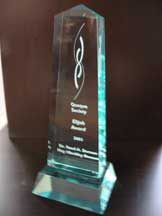
Caroline Cook Ball and Joseph Gordon Skelly
The Quaqua Society is honoring Caroline Cook Ball and her late husband, William Bentley Ball, Esq., along with Joseph G. Skelly, for their respective roles in helping to litigate the landmark case Wisconsin v. Yoder, 406 U.S. 205 (1972), and to otherwise advance the interests of the alternative education community. Yoder changed the legal landscape for alternative education and enabled the subsequent modern home education movement to prosper in the United States.
In addition, Caroline Ball, Joe Skelly, and Joe's wife, Sheila Petulla Skelly, all continue to make ongoing contributions through service to their community, as described below.
William Bentley Ball, Esq. and Caroline Cook Ball
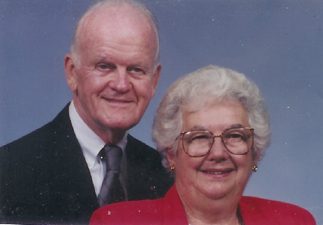
From a legal standpoint, the modern era of home education and alternative education began with the landmark United States Supreme Court decision Wisconsin v. Yoder, 406 U.S. 205 (1972). William Ball was the lead litigator who successfully defended Jonas Yoder's family and thereby turned the legal tide that ran at the time against home education. For over three decades, Ball was a preeminent litigator in the fight for parental liberty, alternative education, and free religious exercise.
On Christmas Eve of 1968, William Ball fielded an urgent call from Dr. William C. Lindholm, a pastor with the Evangelical Lutheran Churches of America. Government officials in Wisconsin had threatened the Old Order Amish family of Jonas Yoder with criminal prosecution because of religiously-motivated participation in Mennonite-based home education and alternative education. Lindholm was trying to find a way to help the Mennonites in general and the Yoders in particular.
Wisconsin's persecution of the Yoders was part of a larger multi-state campaign of cultural genocide designed to exterminate the Mennonite communities all across the Midwest, especially in Ohio, Kansas, Iowa, Illinois, Nebraska, Arkansas, and Wisconsin. (Various Mennonite and Amish sects are part of an interrelated family of denominations who share a common historical heritage and doctrinal lineage. For convenience and brevity only, all Mennonite and Amish sects are collectively referred to herein as "Mennonites.") Mennonites had been subject to fines, imprisonment, forcible removal of children from their parents, seizure of farms and farm equipment, and other measures designed to force the Mennonite children into government schools. The ultimate aim was to coerce the Mennonite population into the economic arrangements preferred by the surrounding non-Mennonite populations. For about ten years just prior to the Yoder case, many Mennonites had been fleeing to open space in Wisconsin as virtual refugees in order to escape persecution in Iowa and other states only to encounter similar harassment by Wisconsin officials.
William Ball responded to Lindholm's Christmas-Eve entreaty and agreed to take the case. At the time, the legal prospects for the Yoders were bleak. Ever since the State v. Hoyt, 146 A. 170 (N.H. 1929) case, state courts had ignored the constitutional principles set forth in Meyer v. State of Nebraska, 262 U.S. 390 (1923), and Pierce v. Society of Sisters, 268 U.S. 510 (1925). The United States Supreme Court had turned a blind eye to the resultant pattern of state-sponsored atrocities against alternative educators of all backgrounds. The Mennonites themselves had recently lost important state court cases very similar to Yoder in Ohio, Nebraska, Kansas, and other jurisdictions, and the United States Supreme Court had refused certiorari. Moreover, the Mennonite plight had simply not garnered the sympathies of the upper crust social circles in New York and Washington, D.C., who tended to favor the educational establishment. At the same time, the local Midwest press had virulently ridiculed the Mennonites and intensified the climate of bigotry.
Notwithstanding the tremendous obstacles, William Ball obtained a landmark decision in favor of the Mennonites and thereby initiated a long, grueling, gradual legal battle to restore the parental liberty, religious liberty, and choice in education originally intended by the Framers of the United States Constitution.
Ball's varied experience, keen intellect, and personal traits uniquely prepared him for the daunting litigation challenge in Yoder. He was born in Rochester, New York, on October 16, 1916. Later he graduated from Western Reserve University in 1940. While a college student, he served in a 107th Cavalry Unit of the Ohio National Guard and performed his duties on horseback. Ball then served in combat with the U.S. Navy during World War II and eventually retired as a lieutenant commander in the Naval Reserve.
After World War II, Ball obtained his law degree from Notre Dame in 1948. During his studies he was Editor-in-Chief for the law review. Ball then practiced corporate law in New York until 1955, first as an in-house attorney for W.R. Grace & Company and then subsequently in a similar capacity for Pfizer, Inc.
In 1955, Ball decided to devote his career to constitutional issues. He joined the faculty of the new Villanova University School of Law as a professor of constitutional law, where he met a law student named Joseph Skelly. In 1960 Ball became general counsel and executive director for the Pennsylvania Catholic Conference of bishops. By 1968 he had founded his own law firm, Ball & Skelly (later to become known as Ball, Skelly, Murren & Connell) in Harrisburg Pennsylvania--to concentrate in litigation for religious freedom.
From 1967-68 onward, Bill Ball left an indelible influence upon constitutional jurisprudence in the United States. He was the Lead Counsel for numerous landmark cases, including: Lemon v. Kurtzman I, 403 U.S. 602 (1971); Lemon v. Kurtzman II, 411 U.S. 192 (1971); Sloan v. Lemon, 413 U.S. 825 (1973); Wisconsin v. Yoder, 406 U.S. 205 (1972); Meek v. Pittenger, 421 U.S. 346 (1975); California v. Grace Brethren Church, 457 U.S. 393 (1982); Bob Jones University v. United States, 461 U.S. 574 (1983); Ohio Civil Rights Comm'n v. Dayton Schools, 477 U.S. 619 (1986); and Zobrest v. Catalina Foothills School District, 509 U.S. 1 (1993). He was also co-counsel for Board of Education v. Allen, 392 U.S. 236 (1968), and filed amicus curiae briefs for such cases as Loving v. Virginia, 388 U.S. 1 (1967); St. Martin Evangelical Lutheran Church v. South Dakota, 451 U.S. 772 (1981); Harris v. McRae, 448 U.S. 297 (1980); United States v. Lee, 455 U.S. 252 (1982); Webster v. Reproductive Health Services, 492 U.S. 490 (1990); Wheeler v. Barrera, 417 U.S. 402 (1974); and Wallace v. Jaffree, 472 U.S. 38 (1985).
Although his manner was always gentlemanly, courteous, measured, and prudent, Bill Ball never lacked the courage to stand up for his beliefs in the face of prominent opposition. He fought vigorously against Justice Harry Blackman in order to challenge various controversial constitutional doctrines such as the Lemon test and the Roe v. Wade approach to abortion, but even his fiercest opponents respected him personally. For his part, Justice Blackmun told a group of law students who had just observed Ball present an oral argument that they were "privileged to see one of the finest oralists this court has ever had, Mr. Ball of Harrisburg, Pennsylvania."
Nor was Ball afraid to counter perceived excesses emanating from any other portion of the political spectrum. As Judge Robert Bork and Justice Antonin Scalia mounted an ongoing effort to scuttle strict scrutiny protection for religious liberty and entirely eliminate any meaningful constitutional protection for parental liberty and educational choice, Ball spoke out vigorously in defense of Meyer v. State of Nebraska, 262 U.S. 390 (1923), Pierce v. Society of Sisters, 268 U.S. 510 (1925), and Wisconsin v. Yoder, 406 U.S. 205 (1972). Despite the concerted attempt of Judge Bork and Justice Scalia to directly overturn these precedents, all three cases still remain good law. And although Justice Scalia worked with Justice Stevens to subsequently strike down the Religious Freedom Restoration Act, a statute enacted by Congress to restore the strict scrutiny test after Employment Division v. Smith, 494 U.S. 872 (1990), the efforts of Ball and many others resulted in a combination of federal and state provisions that now cumulatively operate to ensure strict scrutiny protection for religious liberty for most fact situations in most legal jurisdictions.
Bill Ball had an ability to work across cultural, political, racial, religious, and geographic boundaries in order to ensure sound law and policy. Although he was a staunch Roman Catholic and held many positions of responsibility within that community, Ball also spoke out in defense of Evangelical Christians, Orthodox Jews, Mennonites, Native Americans, and many others. He worked with diverse individuals in a very effective, practical way. Ball litigated dozens of federal and state cases in jurisdictions all across the country, fought for 1986 legislation in Pennsylvania to loosen compulsory education requirements so as to respect religious rights, advocated federal measures designed to protect religious liberty, testified before numerous congressional committees, and spoke out in favor of vouchers, educational choice, and alternative education. His efforts elicited both meaningful results and widespread respect.
Ball disliked elitism and the oppression of ordinary people. At the same time, he worked hard and expected excellence from both himself and his contemporaries. Ball criticized what he saw as a trend by Catholic educational institutions toward the lowering of standards, the acceptance of mediocrity, and the elimination of Catholic distinctiveness in order to pander for outside funding, prestige, and social acceptance. On one occasion Bill Ball was asked to chair a legal advisory board for the Catholic League. When told that other attorneys contacted for possible involvement had all reported they were too busy to help, Ball said, "Fine, I'll do it myself." Despite all of his other considerable professional commitments, Ball's example did the talking as he successfully served as a one-man committee.
Bill Ball was also a noted author of two books, numerous law review articles, scholarly papers, academic lectures, and popular articles. His focus on scholarly writing became most pronounced between 1993 and 1999. Of particular relevance to alternative educators is his Mere Creatures of the State?: Education, Religion, and the Courts (1994), a must-read book discussing the connection between anti-Catholicism, the history of American law, and religious liberty, and an earlier book entitled Freedom & Education: The Pierce Case Reconsidered (1978).
In addition to the items set forth above, Ball was at various time also a Knight Commander of the Order of St. Gregory the Great, a papal knighthood; a member of the publication committee for Crisis magazine; a participant in the Pennsylvania Equal Rights Council, the Christian Legal Society, and the Catholic League for Religious and Civil Rights; a Director and Vice President for the Harrisburg Symphony Association; a Life Member of American Law Institute; a Vice Chairman of the National Committee for Amish Religious Freedom; a member of the Judicial Nominating Committee for Pennsylvania; a member of the Westbury (NY) Board of Zoning Appeals; a member of the National Committee for Year of the Bible; a member of the Advisory Board for the Center for Judicial Studies; a member of the Advisory Board for the Thomas J. White Foundation; a member of the Advisory Board for the Religious Freedom Reporter; and a member of the Advisory Board for the Harvard Journal of Law & Public Policy. He received numerous honorary degrees and academic accolades. To the very end of his life, Bill Ball remained an energetic and inquisitive participant in civil and scholarly life.
Caroline Ball was born Caroline Cook in Norfolk, Virginia. Her father was a physician with the United States Navy. As a result, Caroline's "growing up years" were spent living with her family in various cities throughout the United States, and also for a period of time in Haiti. She attended many different schools along the way.
Caroline graduated from the College of William and Mary in Williamsburg, Virginia, where she majored in sociology. Soon after college, she met Bill Ball, then a young naval officer, in Norfolk, Virginia. They were subsequently married in 1943. The rest of the war years were spent, as Caroline describes it, "following the ship." The Navy background was one factor that helped Bill and Caroline effectively understand and work with people of many different backgrounds.
After the war, Bill and Caroline moved to Indiana where Bill entered law school at the University of Notre Dame. During this same time, Bill had a fellowship teaching German in the undergraduate school, and Caroline worked as a receptionist in the Administration Offices at Notre Dame.
After living in the New York City and Philadelphia areas where Bill held various positions with W.R. Grace & Co, Pfizer, and Villanova Law School, Bill and Caroline settled in Harrisburg, Pennsylvania, with their daughter, Ginny. Caroline became very involved in community activities and charitable endeavors, serving such capacities as the President of the Dauphin County Lawyers' Wives Association. She also played a very active role in helping Vietnamese refugees settle into their new way of life when they came to Harrisburg. Of course, she also provided essential support for Bill Ball's endeavors on behalf of alternative education, parental liberty, and religious liberty.
Caroline and Bill had, in Caroline words, "56 wonderful years of married life" before Bill's death on January 10, 1999, at the age of 82. She continues to reside in the Harrisburg area as does their daughter, Ginny Duncan, who holds two masters degrees and works with the deaf.
The Quaqua Society is pleased to honor Caroline Ball and her late husband William with the 2005 Quaqua Elijah Award, to recognize their profound contribution to the body of legal litigation, scholarship, legislation, and leadership needed for the preservation of parental liberty and alternative education.
The Quaqua Society also wishes to express appreciate to Joseph G. Skelly, Esq., for providing the biographical materials from which this tribute is derived.
Joseph Gordon Skelly and Sheila Petulla Skelly
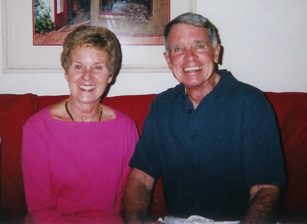
After graduating from the University of Notre Dame, Notre Dame, Indiana, Joe began his pursuit of a career in law by enrolling at the Villanova University School of Law, Villanova, Pennsylvania. It was there that he first met the man who would eventually become his mentor and law partner, William Bentley Ball. Mr. Ball was Joe's constitutional law professor during his second year of classes. Soon thereafter, Mr. Ball left Villanova to move to Harrisburg, the capitol of Pennsylvania, to take the position of General Counsel and Executive Director of the Pennsylvania Catholic Conference ("PCC"), an organization then composed of the eight Roman Catholic Dioceses of Pennsylvania. Mr. Ball represented the PCC in civil issues of statewide significance to the Church.
Upon graduation from Villanova Law School, Joe returned to his native Oil City, Pennsylvania, where he was born and raised, to commence the private practice of law as an associate in a small firm. Joe became the typical small-town young general practitioner, engaging in a wide variety of civil and criminal cases for the next two and a half years. Mr. Ball then invited Joe to join Ball at the PCC as Assistant Counsel. While with the PCC, Joe was involved, to a great extent, in educational matters. Approximately a year and a half after joining PCC, due to an expansion and reorganization of the Conference, Bill Ball and Joe Skelly left the employment of Conference to form their own private practice law firm, Ball & Skelly, where they continued to represent PCC's legal interests as well as a growing number of other private clients.
Due to Mr. Ball's reputation, the firm rapidly became known nationally as one having expertise in educational and constitutional matters, and much of the firm's work consisted of cases involving the constitutionality of various educational issues. During the beginning years of the firm, Joe worked very closely with Mr. Ball on these cases, one of the most notable of which was the landmark case of Wisconsin v. Yoder wherein the United States Supreme Court ruled that the religious liberty and parental liberty of the Amish took precedence over the compulsory education laws of the State of Wisconsin. Joe's name appears on the brief in that case and he was seated at counsel table with Mr. Ball when Mr. Ball presented oral argument to the justices.
As the firm's practice grew, so did the firm. In addition to constitutional law cases, the firm was also building a practice in general civil matters. Two associates of the firm, Philip J. Murren and Richard C. Connell, were added as partners and the firm changed its name to Ball, Skelly, Murren & Connell. At about this time, with other attorneys in the firm available to assist Mr. Ball in the constitutional area, Joe began to concentrate his efforts more in the handling and development of the firm's general civil practice. He was also the managing partner of the firm.
In the civil practice of the firm, Joe handled a wide variety of cases, both litigation and transactional, in many substantive areas of the law, including business and commercial, environmental, zoning, professional licensure, profit and nonprofit corporation and health care matters. He served a wide array of clients from individuals to Fortune 500 companies.
In 1999, after Mr. Ball's death and out of a desire to seek some new challenges after a number of years in the practice of law, Joe undertook extensive mediation skills training. Having an amicable parting with his partners at Ball, Skelly, Murren & Connell he set up his own practice for alternative dispute resolution, the Skelly Dispute Resolution Center. In this practice Joe now helps parties in dispute to resolve cases outside of the traditional litigation setting, principally through mediation and arbitration, primarily in business and commercial matters as well as divorce and family law matters. In addition, he serves as a mediator for special education disputes involving controversies between parents and school districts relating to special education services to children. In addition, he has served as a hearing officer in special education cases.
Joe is a member of the American Bar Association and remains active in the Pennsylvania Bar Association as well as his local bar association, particularly in the areas of ethics and professionalism and alternative dispute resolution. Of particular interest to Joe in the area of ethics and professionalism is the problem, perceived by many both inside and outside of the legal profession, of the breakdown in civility among lawyers. Joe has lectured extensively on the subject including presentations at continuing legal education courses.
Joe serves as an Adjunct Professor at the Harrisburg campus of Widener University School of Law where he teaches Alternative Dispute Resolution as well as Law Practice Management. He is also a frequent lecturer on alternative dispute resolution at continuing legal education courses in Pennsylvania.
Also of intense interest to Joe, and something that has become somewhat of an avocation for him, is working with lawyers and others suffering various illnesses, such as alcohol and other drug addiction, compulsive gambling, depression and similar impairments to help them get into recovery. Attorney problems of this kind can often be aggravated by the stressful lifestyles and sobering aspects of legal work that many of them experience. Joe was a founding director, and remains a member of the Board of Directors, of Pennsylvania's Lawyers Concerned for Lawyers, an outreach organization to lawyers and law students who are experiencing problems in these areas. He has served as a delegate from Pennsylvania to the American Bar Association's Commission on Lawyers Assistance Programs.
On a personal note, Joe is the father of three adult children, Mame, a banker, Meghan, a sales representative, and Steve, an industrial designer. His marriage to their mother ended in divorce in 1997. In 2003 he renewed contact with Sheila Straub Petulla, an Oil City native, whom he had dated forty years previously when he was a young lawyer back in Oil City and she was a young nurse. They were married in December of 2004. They now reside in Harrisburg.
Sheila was born Sheila Jeanne Straub in Oil City, Pennsylvania where she grew up and attended local schools until her college years.
Upon graduation from Gannon University in Erie, Pennsylvania, with a Bachelor of Science Degree in Nursing, she moved to Philadelphia where she was an Associate Instructor of Nursing at the Hospital of the University of Pennsylvania School of Nursing. She also cared for patients on week-ends at Lankenau Hospital.
Sheila married Louis Petulla and they became the parents of two children, John and William. During these early years the family lived in Swarthmore, Pennsylvania, where Sheila practiced as a school nurse. She then accepted a position with the Delaware County Community College, returning to what would become a life-time career of teaching nursing for several years.
Following the Philadelphia years, Sheila and her husband returned to the Oil City area where they raised their sons. Sheila was an Instructor of Nursing at Clarion University of Pennsylvania and became involved in various community and church related activities. She held positions on the Board of Directors of the Easter Seals Society, various hospital foundations, National Honor Society for Nursing, Mu Xi Chapter, chaired various committees for the yearly Oil Heritage celebration, and was involved in teaching religious education to elementary school students.
Sheila completed her Master of Science degree in Nursing at Edinboro University, Edinboro, Pennsylvania in 1988. As a requirement for this degree she wrote and defended a thesis entitled Family Decision: Nursing Home Placement involving research surrounding the timing and decision making in placing a parent in a nursing home. Care of the elderly is, of course, becoming an increasingly prevalent issue for alternative educators and other families alike as the Baby Boomers take care of their parents while simultaneously approaching their own retirement.
After the death of her late husband in 1994, Sheila moved to Pittsburgh and continued her teaching career in nursing. She retired in 2002.
Sheila is the grandmother of three small children. Her two sons completed their educations in civil engineering and law and they are now both engaged in their respective professions.
Sheila married Joseph Skelly in 2004, after having dated Joe forty years earlier. She continues to volunteer as a board member of a condominium association and as a Pastoral Care Visitor at Holy Spirit Hospital in Camp Hill.
The Quaqua Society is pleased to honor Joseph and Sheila Skelly with the 2005 Quaqua Elijah Award, to recognize the profound importance of the Yoder case to the preservation of parental liberty and alternative education.
The Quaqua Society also wishes to express appreciate to Joseph G. Skelly, Esq., for providing the biographical materials.
2004
John Taylor Gatto and Janet MacAdam Gatto
John Taylor Gatto first burst onto the alternative-education scene on January 31, 1990. On that date, Gatto, who was drawing toward the end of a thirty-year teaching career with the New York City public schools, received the New York State Teacher of the Year Award. He delivered the acceptance speech heard round the world.
Gatto's remarks presaged his subsequent contributions to the alternative education community. He candidly lauded home education, noted the crisis in public education, and traced the lineage of compulsory education back to the Know-Nothing era in Massachusetts. He observed that standardized mass instruction was a byproduct of factory-owning tycoons of the industrial revolution, who pressed for an educational culture of conformity and institutional dependence.
In the fourteen years since John Gatto's remarkable address, he has fleshed out the themes outlined in 1990. These intellectual contributions are the reason the Gattos were selected to receive the Quaqua Elijah Award. John and Janet Gatto are part of an open secret in the alternative education community -- the fact that many alternative educators are former public-school teachers!
Born in the river town of Monongahela, Pennsylvania, near Pittsburgh, John remembers citizens rowing through the streets during the great flood of 1935. A tough, practical small-town of 3000 steel-mill workers and coal miners, its Saturday-night streets sounding with fist fights and its big green river dotted with coal barges, Monongahela exerted a deep and long-lasting impact upon Gatto. It was there John first developed his preference for candor, his appetite for new ideas, and his exposure to people from many different demographic backgrounds.
In order to serve as an alter boy for a local Roman Catholic church, Gatto studied Latin. While working as a sweeper in his grandfather's a printing office ("a tougher taskmaster never existed"), young John had an opportunity to read a "dizzying variety" of text materials. As he grew older he played football, baseball, and basketball, sparred with his sister Joan, and became an avid patron of the town library.
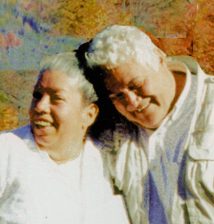
After stints as a scriptwriter for a film company and copyrighter for a large advertising agency, John Gatto sought more professional fulfillment. He became a substitute schoolteacher in Harlem, New York City, and spent the next thirty years serving as a teacher in public junior high schools. There he utilized his "guerrilla curriculum" to great effect. His career was capped by the aforementioned New York State Teacher of the Year Award, awarded by the New York State Senate on January 31, 1990. He received a separate New York City Teacher of the Year Award from a well-known foundation.
Once John Gatto caught public attention because of his notable acceptance speech, accolades poured in. He was praised by a Nebraska Senator (Congressional Record No. 135), published in the Wall Street Journal, lauded as by the Princeton Review as "breathtaking, scholarly, and encyclopedic," described as "one of the world's most controversial education reformists" by the Western Australian, and made the subject of a Carnegie Hall show called "An Evening With John Taylor Gatto." Although some may take issue with John Gatto's ideas, most observors seem to agree that he has started an important conversation about education.
Now a popular speaker in home-education and alternative-education circles, as well as a frequent television and radio guest, John Gatto has traveled more than two million miles since 1991. He received the Alexis de Tocqueville Award in 1997. He has also authored four books, all available in electronic form on his website for the Odysseus Group: Dumbing Us Down: The Hidden Curriculum of Compulsory Schooling (2002), The Exhausted School: Bending the Bars of Traditional Education (2002), A Different Kind of Teacher: Solving the Crisis of American Schooling, and the Underground History of American Education (2004). A fifth book, The Curriculum of Power, is currently in the works as of 2004. Gatto is also working on a documentary film about the origins and nature of forced schooling, entitled The Fourth Purpose.
John Gatto's wife, the former Janet MacAdam, was born in Panama to Scottish immigrants Thomas James MacAdam and his wife, Doris Cuthbertson-Brown of Glasgow. They were in Gamboa, Panama, during World War II to help maintain the Panama Canal; subsequently they moved to Oyster Bay Cove, Long Island. Janet's mother was one of seven intrepid sisters who came to America searching for a better life during the Great Depression.
Janet's father died at sea when she was eleven, creating difficult family circumstances during her teenage years. Just out of Oyster Bay High School she became a fur model on Manhattan's Fifth Avenue.
At age nineteen, Janet met John at a public swimming pool on East 77th Street. Janet inadvertently dripped water on a poolside chess board while walking past John, who was locked in mental combat with his friends. Although not yet introduced, John threw Janet back into the pool. Later that day, the two chanced upon each other again while attending an evening performance of jazz-man Thelonius Monk, performed at the Five Spot Cafe. They never looked back.
John calls his forty-four years of marriage to Janet the "single best thing that ever happened to him" and says Janet is his "best editor, critic, and taskmaster." Janet Gatto is "a Scottish Presbyterian who learned . . . that unredeemed Catholics are . . . well . . . not going to be in need of overcoats in the afterlife. She's been working on my reconstruction ever since."
Janet became editor at her college newspaper, ring designer, producer of dramatic audiotapes, Treasurer of School District Three, and an elected member of the local school board. She founded the highly-successful Weekend Market on West 77th, which annually raises about a half-million dollars for neighborhood schools.
Janet produced for Lava Mountain Records, operated a mail-order antiques business, and maintained a mail-order library of classical radio shows. An avid cook, she earned three degrees from the Culinary Institute of America. She also participates in regular gardening and bird-feeding.
Although Janet has at various times been challenged by Lyme Disease, severe arthritis, and breast cancer, she continues to press forward with the Gattos' latest project: creating "Solitude," a 128-acre retreat for home educators near Ithaca, New York.
The Quaqua Society is pleased to honor John and Janet Gatto with the 2004 Quaqua Elijah Award, to recognize their study of the relationship between home education, the history of religious and ethnic discrimination, the Industrial Revolution, the history of Massachusetts, and the pedagogical theories of early government-school advocates. An understanding of these interrelationships is central to an accurate appreciation of the history of education.
Some portions of this biographical sketch have been compiled from information courteously provided by John and Janet Gatto. John Gatto's remarks in accepting the Quaqua Elijah Award can be found here.
2003
John W. Whitehead, Esq., and Carol Whitehead
John W. Whitehead, founder and president of The Rutherford Institute, is an attorney and author who has written, debated and practiced widely in the area of constitutional law and human rights. In particular, Mr. Whitehead has acted to provide legal assistance to parents and alternative educators.
Born in 1946 in Tennessee, John spent much of his childhood in Peoria, Illinois. It was there that John met, and later married, Carolyn Nichols, his childhood sweetheart. Since their marriage in 1967, Carol has dedicated herself to helping John pursue his dream of founding an organization that would defend people who were persecuted or oppressed for their beliefs without charging them for such services. Carol remains John's sounding board, assistant, editor and best friend. They are the parents of five children. According to John, he wouldn't be where he is today had it not been for Carol's selfless devotion, unconditional love and faithfulness.
John earned a Bachelor of Arts degree from the University of Arkansas in 1969 and a Juris Doctorate degree from the University of Arkansas School of Law in 1974. He served as a First Lieutenant in the United States Army from 1969 to 1971. He subsequently worked as a private litigator and served as an adjunct professor of law at the O. W. Coburn School of Law, where he taught a special course on First Amendment law.
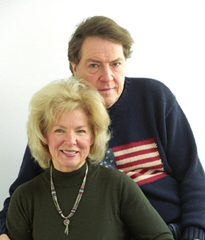
In 2003 alone, The Rutherford Institute handled over 10,000 requests for legal assistance. Many such requests were from home educators, parents confronting child-protection agencies, minorities suffering religious persecution, and victims of improper searches and seizures. The Institute maintains a national affiliate network of over 700 voluntary attorneys, who receive training, legal research, case support, and funding for court expenses. The Institute also maintains a media department to educate the public about constitutional liberties. Like the Quaqua Society, The Rutherford Institute depends solely upon donations for the maintenance of its operations.
John has authored at least twenty books. One groundbreaking work, Home Education and Constitutional Liberties: The Historical and Constitutional Arguments in Support of Home Instruction (Westchester, IL: Crossway Books, 1984), is a classic must-read for anyone who wishes to understand the historical, legal, and ideological underpinnings of the alternative-education movement. Two subsequent books, Parents' Rights (Westchester, IL: Crossway Books, 1985), and Home Education: Rights and Reasons (Westchester, IL: Crossway Books, 1993), are excellent addendums to his 1984 work. The intellectual contribution made by these books was a major factor leading to Quaqua's selection of the Whiteheads for the Elijah Award.
John has also published articles in eleven different law review publications and in such print media as the New York Times, the Washington Post and USA Today. His writing focuses mostly upon First Amendment liberties, especially the application of such rights to education. He directed a seven-part documentary video series, Grasping for the Wind, which focuses on key cultural events of the 20th century and is accompanied by a book and study guide. Grasping won the 1998 and 1999 Silver World Medal in the New York Film Festival.
John has also been the subject of numerous newspaper, magazine and television profiles, ranging from Gentleman's Quarterly to CBS' 60 Minutes. He has appeared on such shows as Crossfire, CNN Headline News, Larry King Live, Nightline, Dateline, The Today Show, Good Morning America, CBS Evening News, CBS This Morning, This Week with Sam and Cokie, Rivera Live, Burden of Proof, Late Edition with Wolf Blitzer, FOX News Sunday, Hardball, the New York Times, the Washington Post, the Wall Street Journal, USA Today, National Public Radio, BBC Newsnight, BBC Radio, British Sky Tonight and Sunday, TF1 (French TV) and Greek National Television.
No profile of the Whiteheads would be complete without a mention of John's most famous professional achievement, his role as co-counsel for the Paula Jones sexual harassment lawsuit against President William J. Clinton. The case culminated in a landmark ruling, Clinton v. Jones, 520 U.S. 681 (1997), in which the United States Supreme Court ruled that the Constitution affords the President no temporary immunity from civil damages litigation arising out of events occurring before the President took office.
Like the proverbial chaos-theory butterfly that caused a thunderstorm in America by flapping its wings in China, the Jones case dramatically affected the course of world history. President Clinton committed perjury during a deposition for the Jones litigation by denying an affair he had with White-House Intern Monica Lewinsky, an action which formed the legal basis for his subsequent impeachment trial. Clinton's impeachment, in turn, created political baggage that almost certainly cost Albert Gore a victory in Gore's razor-close 2000 presidential contest against George W. Bush. President Clinton was eventually forced to settle the Jones case for $850,000.00, pay a $90,000.00 fine for contempt of court, and surrender his law license to avoid disbarment. (Quaqua has no official position regarding the impeachment, the Clinton v. Jones litigation, or the 2000 presidential campaign.)
John's aggressive, pioneering approach to civil liberties issues has earned him numerous accolades, including Christian Leader of the Year for 1986 for "outstanding service in religious liberty" at the Christian World Affairs Conference in Washington, D.C. He was also selected for the 1990 Business and Professional Award by the Religious Heritage of America Foundation and was awarded the Hungarian Medal of Freedom in Budapest, Hungary in November 1991 by the President of Hungary.
Living in Virginia, a state with a rich tradition of constitutional law, political thought, and alternative education, John's commitment to liberty remains strong. "All freedoms hang together. To defend one constitutional freedom is to defend them all, and to defend one person's constitutional rights is to defend those rights for everyone. No governmental official is above the law. The Rutherford Institute exists to ensure that people are treated fairly in the courts and are free to express themselves without fear."
John Whitehead was the first person to champion the civil-rights component of the "modern" home-education movement. He was one of the first to understand that the cause of alternative education is based not only upon free-market principles and pedagogical innovation, but also upon a commitment to ensuring legal protection for the fundamental human liberties of all people.
John Whitehead became the first modern "briefcase warrior" for home education, litigating and writing to preserve parental liberty and home education. Many attorneys in other service organizations received their training from The Rutherford Institute. John's innovative legal and institutional paradigm, once the target of great skepticism, now serves as the model for numerous other legal organizations founded after 1982 (both inside and outside of the alternative-education movement).
The Quaqua Society is pleased to honor John and Carol Whitehead with the 2003 Quaqua Elijah Award, in recognition of their innovative approach to defending those liberties which are of such crucial importance to all alternative educators.
This biographical sketch for the Whiteheads has been drawn from information on the website for The Rutherford Institute, and electronic mail provided by Nisha Mohammed of The Rutherford Institute.
2002
Dr. Raymond Moore and Dorothy Moore (In memoriam 1915 - 2002)
Dr. Raymond S. Moore was born in Glendale, California, on September 24, 1915. At age four, Raymond lost his devoted mother, Dorcas, to the devastating 1918 flu epidemic.
Dr. Moore attended public and church schools in California. He graduated from Glendale Adventist Academy in 1932, and spent six years at Pacific Union College. His studies were interrupted by a flood that destroyed both his home and his construction business. To persevere through the Great Depression, he worked as a handyman by logging, milking cows, firing boilers, plumbing, and concrete finishing.
Dr. Moore's first teaching experience was in 1933, when he taught remedial English at Pacific Union College during his sophomore year. He graduated and married Dorothy Lucille Nelson in June 1938.
Dorothy Lucille Nelson Moore was born on a farm in Bruce, South Dakota on October 30, 1915. She was a Methodist and Seventh-day Adventist Christian of Norwegian ancestry. She helped her father at his dairy in California almost until she finished at Long Beach California Junior College and went on to Pacific Union College.
Dorothy was California State Spelling Champion and Gregg Shorthand gold medalist. In college she admired Ellen White and became a respected student leader whose first concern was poor or troubled girls.
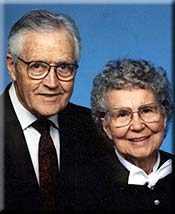
Pearl Harbor resulted in a transfer to San Francisco Port of Embarkation Medical Section, where as a Captain over personnel and intelligence matters he worked in the company of a communications officer named Ronald Reagan.
His next assignment was in New Guinea, where he helped build the 47th General Hospital. He subsequently commanded the New Guinea rotation Detachment and Casual Camp, Milne Bay, New Guinea, then was promoted to Major and executive officer in the South Pacific Medical Commander in Lae, New Guinea. He concluded his 58 months of active duty by serving as general staff medical personnel officer for General Douglas MacArthur, the famed home-educated military leader, in Manila, Philippines.
After leaving active duty in March, 1946, Dr. Moore became Superintendent of Schools in Artesia, California. There he was invited to teach at University of Southern California on a doctoral fellowship. After doctoral study in college and university administration and early childhood education, he was called to Pacific Union College in 1947 as head of its graduate teacher-education program. He helped Pacific Union College upgrade and obtain state accreditation.
Dorothy, meanwhile, distinguished herself in public service in California schools as a remedial reading specialist and as a faculty wife at the University of Southern California. She then became a faculty wife and Sabbath School leader at Pacific Union College. Along with her other responsibilities, she reared and educated seven "chosen" teenagers through college.
In 1951 Dorothy moved to Japan with Dr. Moore, only a few years after her husband and brother had fought in the War to defeat Japan. The Moores helped San-Iku Gakuin College achieve status as an accredited, debt-free, senior education institution. The Moores also helped develop an Adventist school system for Japan and Okinawa. They implemented a "work-study-service" plan at the college in which all teachers worked with students, including the family of Senior Prince Takamatsu.
In 1956, Dr. Moore went to Philippine Union College. He later went on to serve as President of Southwestern Union College. His program theme continued to be work-study, debt-freedom, academic standards, social standards, and home education. Dr. Moore also worked to achieve integration of African-American into Southwestern Union College.
Dr. Moore was subsequently called to the General Conference of Seventh-day Adventists as one of a team of five to help pioneer what is now known as Andrews University in Berrien Springs, Michigan. In 1960, he went to Loma Linda as corporate vice-president to share leadership in the transition to Loma Linda University. After a years of raising a family in Japan, the Philippines and Washington, D.C., Dorothy became the founding director of the Loma Linda University Cerebral Palsy Clinic in California.
In 1964, Dr. Moore accepted the job of graduate programs officer with the U.S. Department of Education, a position which involved the funding and upgrading of master and doctoral programs of American colleges and universities. He helped colleges and universities save billions of dollars. The White House published two of his books.
After moving on to a stint with UNESCO, Dr. Moore he was invited to be the founding director of the International Advanced Intercultural Study Center. This consortium at the University of Chicago included member institutions such as Johns Hopkins, Southern Illinois, Stanford, Tulane and Wisconsin. The Center studied indigenous people ranging from Native Americans to tribes in Lesotho. Dr. Moore met the prime minister of Lesotho, along with Ghandi's former secretary and the author of Indonesia's new language.
Dr. Raymond and Dorothy Moore worked about 40 years together as leaders, editors, and authors for their research foundations. They helped form the Cedar Springs Foundation, which was later renamed the Hewitt Research Foundation. Since 1983 the Foundation has operated in Washougal, Washington, near the Columbia River. The Moores focused on early childhood education, school entrance age, and teacher-student work-study programs. Along with Raymond, Dorothy served as a pioneer in the resurgence of the old-fashioned home-education phenomenon. Reflects Dr. Moore, "God, with the likes of Reader's Digest, James Dobson, John Holt, Reed Benson, thousands of media, and all of you, turned home education into a giant movement."
The Moores have written numerous books and published articles. Their most famous work, a 1979 Brigham Young University Press book entitled School Can Wait, was written during this period. This book is a classic must-read for scholars of the alternative-education movement. Raymond's authorship credits include thirty-five college texts.
Beginning in 1983, Dorothy headed a team of carefully selected educational counselors who fulfilled the dream of helping families educate their own children legally. The Moores set up individualized programs for each child enrolled, creating units of study tailored to the child's interests, aptitudes and abilities. Now known as the Raymond S. and Dorothy N. Moore Foundation in Washougal, Washington, their program works with hundreds of families every year and has formed the basis for a "Malachi Movement" stressing family togetherness and work-study-service balance in schools. The goal of the organization is to make schools, churches and families more creative, efficient and debt-free in health, education, welfare and service to their communities.
When Dorothy passed away in 2002, after a lifetime of service, alternative educators around the world lauded her contribution. We knew her voice could never be fully replaced. "I thank God, my Master Teacher," said Dr. Moore, "for giving me a special lady for 64 years who walked at my side during half of those homeschool years through sunshine and storm."
In her absence, and with the help of a new wife who "selflessly" assists him, Raymond continues to be a tireless, progressive force in alternative education. His profound reservoir of professional, cultural, religious, educational, and intellectual experience continues to inform and enrich the alternative-education movement.
For all of this, and more (no pun intended), the Quaqua Society is very pleased to present the 2002 Quaqua Elijah Award to honor Dr. Raymond and Dorothy N. Moore.
Biographical sketches for the Moores were drawn from the Raymond S. and Dorothy N. Moore Foundation memorial page, the Raymond S. and Dorothy N. Moore Foundation biographical sketch of the Moores, and electronic mail provided by Pat Wolfswinkel of the Raymond S. and Dorothy N. Moore Foundation.
2001
Dr. Reed A. Benson and May Hinckley Benson
The 2001 Elijah Award was presented to Dr. Reed A. Benson and his wife, May Hinckley Benson.
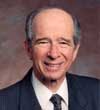
Dr. Benson was the author of the first dissertation in the nation on home education, which is still in print. He collaborated with John Holt, Dr. Raymond Moore, Dr. Larry Arnoldson, and other early pioneers of modern alternative education, consistently lending his influence to support home education during its critical embryonic years in the western United States. He helped develop some of the modern conventions of the home education movement, including the very notion of state home-education conventions and "modern" home-education outreach.
May Hinckley Benson was honored as Homeschooling Mother of the Year in 2000. She completed studies at the University of Utah, University of Maryland, and Cornell. With a great display of courage, she successfully home-educated her nine adopted children for fifteen years during the early days of the modern home-education movement. She is a popular speaker and a pioneer in the home education movement who has consistently lent her voice of experience and support. Both Reed and May are members of the Church of Jesus Christ of Latter-Day Saints.
The Quaqua Society is both proud and grateful to honor the Bensons for their profound contribution to the home-education community. They have been instrumental in helping Utah to have, at least to this point, one of the most progressive environments for home education to be found anywhere in the nation. Their tireless and uncompensated service has touched thousands of lives. They will never be forgotten.
Biographical sketches for the Bensons were drawn from http://www.schoolofabraham.com/speakers.htm.
John Holt (In memoriam 1923 - 1985)
John Holt passed away on September 14, 1985, before Quaqua was founded. Had Holt lived to reach his 77th birthday, however, he almost certainly would have been the Quaqua Society's first Elijah Award recipient.
Holt receives honorary mention on this page because of his profound contribution to the modern alternative-education movement. Photographs and a biographical sketch of Holt can be found by clicking here.
